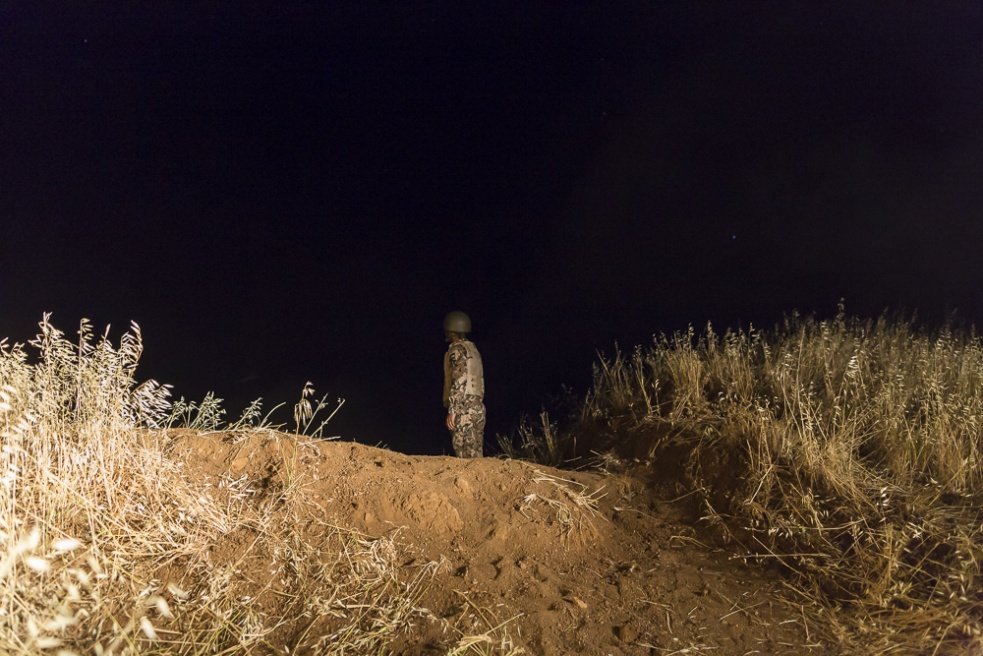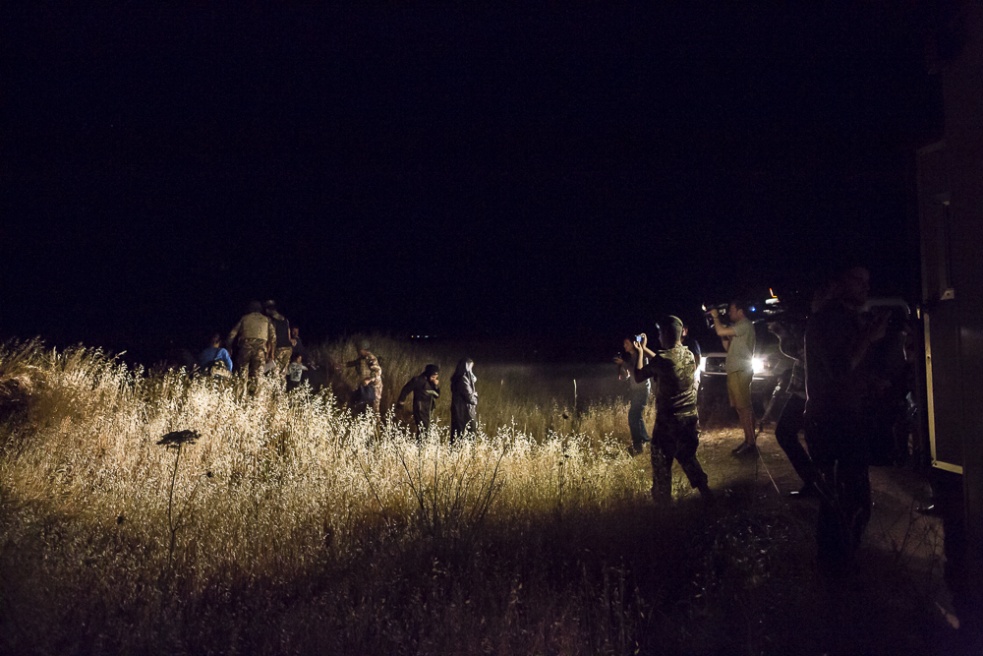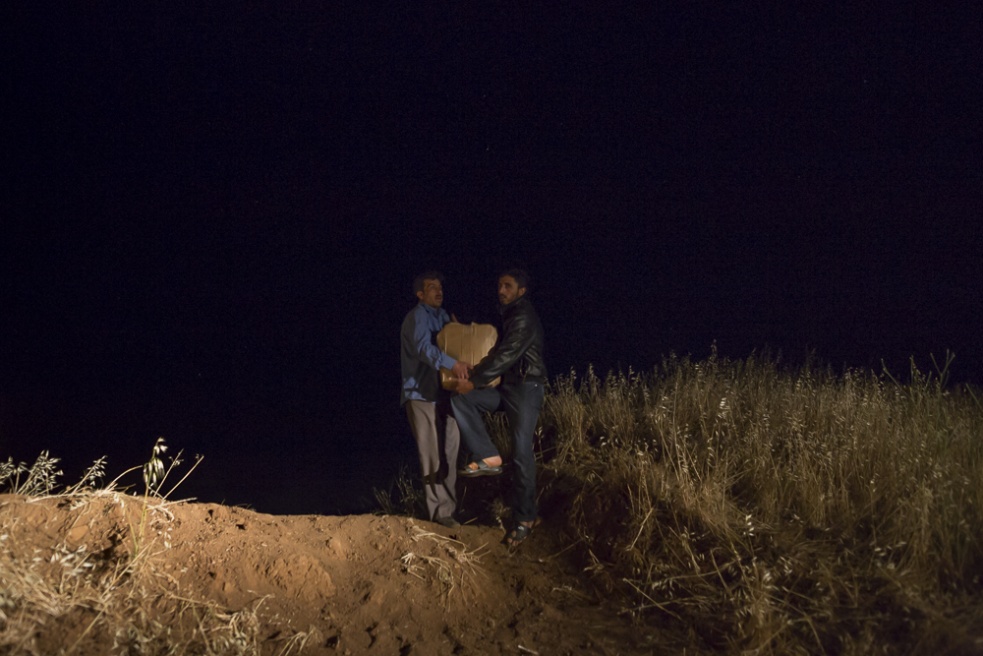Dreaming of Syria is a reflective portrait of Syrians refugees in exile and a step into a long-term exploration of the everyday lives of Syrian refugees in the Middle East. It offers a glimpse into the emotional state of Syrians who have fled civil war at home only to find a permanent state of suspense abroad. Boredom, fear, anxiety, depression, worry but also resilience and fortitude are revealed in a portrait driven and contemplative project that invites the viewer to consider the ramifications of the decision to leave their homes because, with no end of the violence in sight, their flight is a symptom of a potentially permanent population shift reminiscent of the Palestinian crises of ‘48 and ‘67.
...
While the fighting in Syria continues and a civilian population is trapped by civil war, millions of Syrian refugees have to look on how their hopes for a ‘normal’ future disappear. The sense of dispossession is absolute. They have all lost their country, their homes and sense of self. Most have lost loved ones or had to leave them behind in Syria. They talk about missing out on lives, dreams they had to abandon, and futures that now seem forever lost.
A steady stream of civilians continues to flood neighbouring host countries, like Jordan, through official and unofficial border crossings as they flee on-going violence. Many feel safer crossing in the dark, but it remains a risky journey by day or night. The Free Syrian Army whisks them to the border. On the other side army watchtowers keep a close eye on Syrian troop movement. The moonlight guides them as they walk among the sand and rocks. They make their way by foot carrying what they can. It’s a dangerous and tiring journey. The refugees arrive exhausted, scared and traumatized. Bundled in their arms are infants swaddled in thick blankets, jars of olives, plastic bags and suitcases jammed with clothing. With their border ordeal over, exhausted families gather together in army tents. They’re still restless, even the toddlers, and concerned with where they’re going to sleep that night, and if friends and family members had reached safety. They’re physically and emotionally worn down. They’ve taken the risk to leave for an uncertain future abroad, and while they have escaped civil war, when they cross the border refugees face a host of new challenges.
In this volatile region, Syrian refugees face different challenges in each of the host countries who are contending with the biggest refugee crisis in 20 years and which is constantly threatening to destabilise the region.
In Jordan, many of the new arrivals are whisked away to refugee camps, especially if they’ve crossed into Jordan through unofficial channels. Its largest refugee camp, Zaatari, only opened last year and was built to accommodate 60,000 people but now hosts 144,000 refugees. Today Zaatari is Jordan’s 4th largest city. And as staggering as this is, sadly, it’s only half the story because the vast majority of displaced Syrians, across the region, don’t live in refugee camps but in villages, cities and towns.
The refugee crisis in urban areas is far less visible but no less serious than in the camps. Many urban refugees are living in unheated or unfurnished apartments, garages or tents, which are often overcrowded. Many families are facing increased debt as they struggle to pay for soaring rent and rising costs of food, water and other basic essentials. With no access to income, their problems will only multiply. Families are already running out of money for rent and other essentials. Many will be forced to desperate measures to get by. Some families have already adopted negative coping strategies, including illegal low-paying work, reducing the number of daily meals, child labour, begging and transactional sex. They are deeply ashamed to do this, but they have no choice.
Syrians are increasingly vulnerable to many different types of exploitation, and the communities they are living with are also facing difficulties in coping with this vulnerable and impoverished population. The host countries are confronted with the greatest refugee crisis in 20 years and are feeling the strain, with public services stretched to their limits. Their generosity has come at a heavy price as there are rising tensions between refugees and host communities and cross-border incidents are becoming increasingly common.
The Syrians, on the other hand, feel abandoned by the international community because urban refugees are not seen as a priority even though the majority live outside camps. They feel the suspicion of their new neighbours growing each day knowing that their sheer presence puts a strain on society at large. The constant worry about financial insecurity and the resentment of their neighbours adds psychological stress to families. Sometimes the daily struggle to just get by is so overwhelming that they make the heart-breaking decision to return to a war torn Syria. They return to a country where they feared for their lives because the bare existence as a refugee was unbearable.
...
This is just the end of the beginning; the expectation is for things to get worse.
...
david@davidbrunetti.com | @david_brunetti | www.davidbrunetti.com | www.davidbrunetti.wordpress.com



































